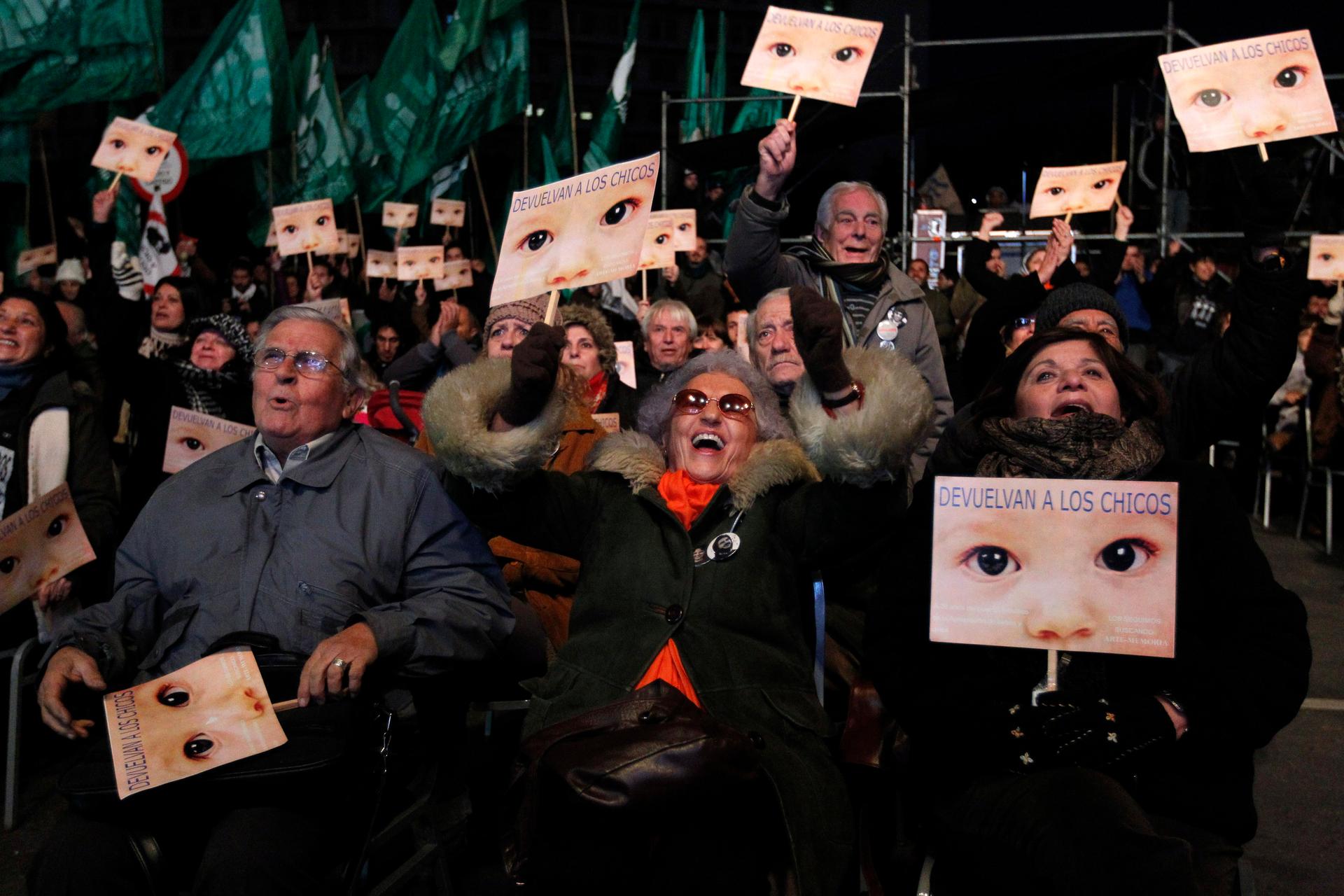The US will declassify sensitive records about Argentina’s US-backed dictatorship
Argentinians react to the court verdict of former dictator Jorge Videla and other military officers in Buenos Aires July 5, 2012. The military men were convicted of systematic theft of babies from political prisoners during the 1976-1983 "dirty war" dictatorship. Families held posters reading, "Give back the children."
The United States said Thursday it will begin declassifying sensitive military and intelligence records linked to Argentina's "dirty war."
The announcement came days before President Barack Obama's visit to Argentina, which coincides with the 40th anniversary of a right-wing military coup that the US government condoned.
"President Obama — at the request of the Argentine government — will announce a comprehensive effort to declassify additional documents, including, for the first time, military and intelligence records," National Security Advisor Susan Rice said.
More from GlobalPost: Argentina: I was stolen and raised by the regime
In 2002, Washington declassified 4,000 diplomatic cables which showed US officials, including then-secretary of state Henry Kissinger, encouraged a crackdown that killed an estimated 30,000 people.
The target of the repression was leftist dissent, real or perceived, against the military junta that ruled Argentina from 1976 to 1983.
The intelligence and military documents could shed new light on the depth of US involvement in the coup and in the purges which followed.
They may also shed more light on the extent of US involvement in "Operation Condor," a plan among secret police agencies across the Southern Cone to target communists, leftists and dissidents.
Beginning in the 1970s the United States backed right-wing governments across Latin America in the hope of preventing the spread of communism and Soviet influence.
"This anniversary and beyond, we're determined to do our part as Argentina continues to heal and move forward as one nation," said Rice.
During his visit Obama plans to visit the Parque de la Memoria to honor the victims of the "dirty war."
US involvement in that dark era remains a difficult subject in Argentina and has left the country with one of the highest rates of anti-Americanism in Latin America.
A 2005 visit by president George W. Bush was marked by mass protests.
Obama advisor Ben Rhodes said Obama would look to engage the controversial issue of US complicity in abuses.
"He believes that part of moving forward in the Americas or any other part of the world involves a clear-eyed recognition of the past," said Rhodes.
arb/dw
Our coverage reaches millions each week, but only a small fraction of listeners contribute to sustain our program. We still need 224 more people to donate $100 or $10/monthly to unlock our $67,000 match. Will you help us get there today?
